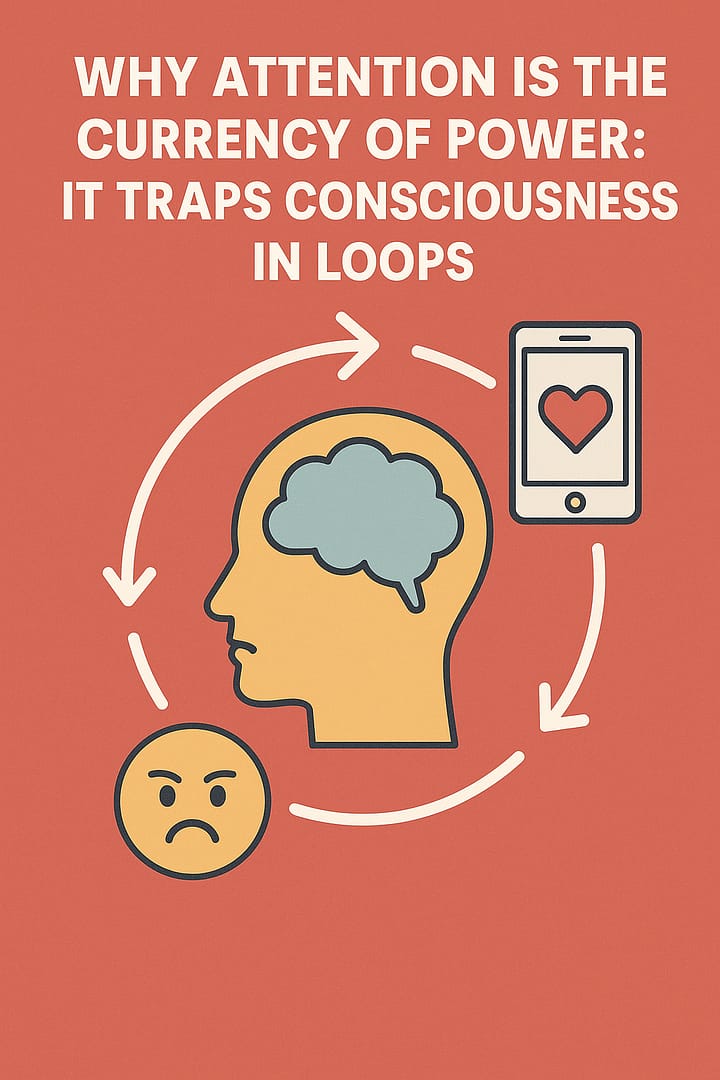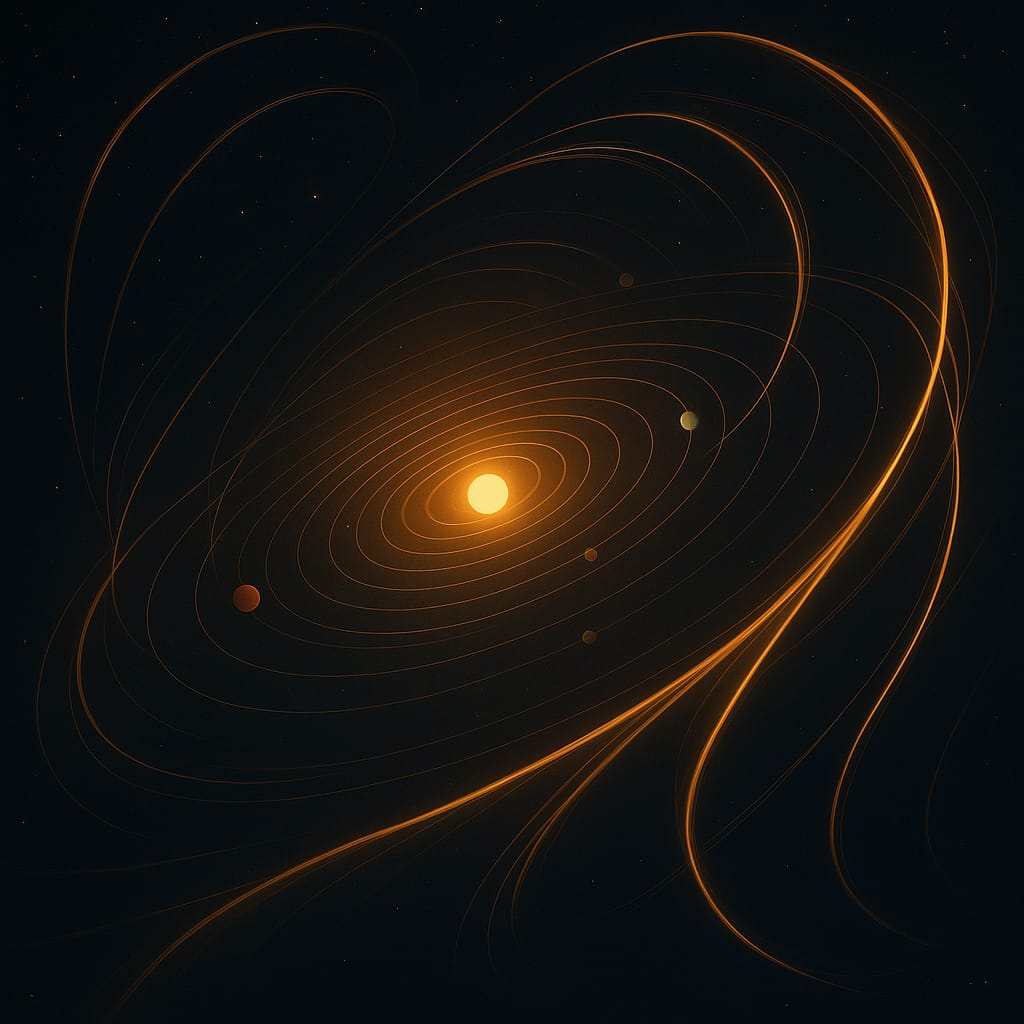The godproof throughout centuries and religions
Throughout history, humans have sought to understand the nature of existence and the meaning of life. One way that people have attempted to make sense of the world around them is by turning to religion and spirituality. Within these belief systems, gods and goddesses are often seen as the ultimate beings who control the world and determine the fate of individuals.
The concept of a god or gods who control the universe has been present in many religions throughout history. For example, in ancient Greece, the gods were believed to reside on Mount Olympus and were responsible for various aspects of human life, such as love, war, and agriculture. In Hinduism, there are multiple gods who represent different aspects of the universe, such as Brahma (the creator), Vishnu (the preserver), and Shiva (the destroyer).
In monotheistic religions such as Judaism, Christianity, and Islam, there is typically only one god who is believed to be all-powerful and all-knowing. This god is often referred to as Yahweh, God, or Allah, depending on the specific religion.
The idea of a god or gods who control the world has been the subject of much debate and skepticism throughout history. Some people have sought to provide proof of the existence of a god or gods through philosophical arguments or religious experiences. For example, the philosopher Thomas Aquinas argued that the existence of the universe requires the existence of a creator, which he identified as God.
Others have sought to disprove the existence of god or gods, often through scientific means. For example, the theory of evolution has been seen by some as evidence that life on earth was not created by a divine being, but rather evolved through natural selection.
Despite these debates, the belief in god or gods continues to be an important part of many people’s lives and worldviews. For some, it provides comfort and a sense of purpose, while for others it is a source of conflict and division. Ultimately, the concept of a god or gods remains a complex and deeply personal topic that continues to shape human history and culture.
There have been numerous attempts throughout history to provide proof of the existence of God, or gods, through philosophical, theological, and even scientific arguments.
Examples of “godproofs” and when they were developed
Ontological Argument (11th century)
This argument was first proposed by Saint Anselm of Canterbury in the 11th century. It states that God is the greatest being imaginable, and since existence is a necessary part of being great, then God must necessarily exist.
Cosmological Argument (13th century)
This argument was first developed by Thomas Aquinas in the 13th century. It states that everything in the universe has a cause, and since there cannot be an infinite chain of causes, there must be an uncaused cause, which Aquinas identified as God.
Teleological Argument (18th century)
This argument, also known as the “argument from design,” suggests that the complexity and order of the universe imply the existence of a designer, which is identified as God.
Moral Argument (18th century)
This argument suggests that the existence of objective moral values and duties requires a divine source, which is identified as God.
Kalam Cosmological Argument (9th century)
This argument, developed by Muslim theologians in the 9th century, states that everything that begins to exist has a cause, and since the universe began to exist, it must have a cause, which is identified as God.
Fine-Tuning Argument (20th century)
This argument, which has gained popularity among some contemporary theologians and philosophers, suggests that the precise conditions necessary for life in the universe imply that it was designed by an intelligent creator, which is identified as God.
Argument from Religious Experience (Various)
This argument suggests that the personal experiences of individuals, such as feeling a sense of connection or communion with a higher power, provide evidence for the existence of God or gods. This argument has been used by mystics and religious figures throughout history, such as the Christian mystic St. Teresa of Avila and the Hindu sage Ramakrishna.
Argument from Miracles (Various)
This argument suggests that the occurrence of miracles, such as supernatural healings or events that defy natural laws, provide evidence for the existence of a divine power. This argument has been used by many religious traditions throughout history, including Christianity, Islam, and Hinduism.
Argument from Consciousness (20th century)
This argument, developed by philosophers such as David Chalmers and Robert Nozick in the 20th century, suggests that the existence of consciousness is a mystery that cannot be explained by physical laws alone, and therefore requires a non-physical explanation, such as the existence of a divine consciousness or God.
Argument from Personal Conviction (Various)
This argument suggests that an individual’s personal conviction or belief in God or gods is itself evidence for their existence. This argument has been used by many religious believers throughout history, who argue that their faith provides them with a sense of purpose, meaning, and connection to a higher power.
It’s important to note that none of these arguments have been universally accepted as conclusive proof of the existence of God. Instead, they represent different attempts throughout history to make sense of the world and our place within it, and to provide a basis for belief in a higher power.
And they continue to be debated and critiqued by philosophers, theologians, and scientists.
Godproofs in the First Centuries of Our Era: A Survey of Arguments for the Existence of God in Early Christian and Greco-Roman Thought
In the first few centuries of the Common Era, there were several “godproofs” that were proposed by philosophers and theologians, many of which are still debated today. Here are a few examples:
Cosmological Argument
This argument was first proposed by Plato and Aristotle in the 4th century BCE. It suggests that everything in the universe has a cause, and since there cannot be an infinite chain of causes, there must be a first cause, which is identified as God.
Argument from Motion
This argument was developed by Aristotle in the 4th century BCE. It suggests that everything in the universe is in motion, and since everything that is in motion must be set in motion by something else, there must be an unmoved mover, which is identified as God.
Argument from Contingency
This argument was first proposed by the Muslim philosopher Al-Ghazali in the 11th century CE. It suggests that everything in the universe is contingent, or dependent on something else for its existence, and since there cannot be an infinite chain of contingencies, there must be a necessary being, which is identified as God.
Argument from Design
This argument was first proposed by the Greek philosopher Plato in the 4th century BCE. It suggests that the complexity and order of the universe imply the existence of a designer, which is identified as God.
Moral Argument
This argument was first proposed by the Greek philosopher Plato in the 4th century BCE. It suggests that the existence of objective moral values and duties requires a divine source, which is identified as God.
Argument from Authority
This argument was used by early Christian theologians such as St. Augustine and St. Thomas Aquinas. It suggests that the Bible, as the revealed word of God, provides evidence for the existence of God.
It's important to note that these arguments were developed within specific cultural and philosophical contexts, and may not be persuasive to those who hold different beliefs or worldviews. Nonetheless, they represent important attempts to grapple with fundamental questions about the nature of existence and the divine.
Table summarizing the “godproofs” we’ve discussed, in chronological order, along with some of the pros and cons of each argument
| Argument | Philosopher/Theologian | Time Period | Pros of Argument | Cons of Argument |
| Argument from Motion | Aristotle | 4th century BCE | Suggests that there must be an unmoved mover or prime mover, which is identified as God | Assumes that everything in the universe is in motion |
| Cosmological Argument | Plato and Aristotle | 4th century BCE | Suggests that everything in the universe has a cause, and there must be a first cause, which is identified as God | Assumes that everything in the universe has a cause |
| Argument from Design | Plato | 4th century BCE | Suggests that the complexity and order of the universe imply the existence of a designer, which is identified as God | Assumes that the universe was designed rather than evolved naturally |
| Moral Argument | Plato | 4th century BCE | Suggests that the existence of objective moral values and duties requires a divine source, which is identified as God | Assumes that objective moral values and duties exist |
| Argument from Authority | St. Augustine, St. Thomas Aquinas | 5th-13th century | Suggests that the Bible, as the revealed word of God, provides evidence for the existence of God | Assumes the authority of the Bible as a reliable source of evidence |
| Ontological Argument | St. Anselm of Canterbury | 11th century | Suggests that God is the greatest being imaginable, and since existence is a necessary part of being great, then God must necessarily exist | Assumes that existence is a necessary predicate of greatness |
| Cosmological Argument | Thomas Aquinas | 13th century | Suggests that everything in the universe has a cause, and since there cannot be an infinite chain of causes, there must be an uncaused cause, which Aquinas identified as God | Assumes that there cannot be an infinite chain of causes |
| Teleological Argument | Various | 18th century | Suggests that the complexity and order of the universe imply the existence of a designer, which is identified as God | Assumes that the universe was designed rather than evolved naturally |
| Moral Argument | Various | 18th century | Suggests that the existence of objective moral values and duties requires a divine source, which is identified as God | Assumes that objective moral values and duties exist |
| Kalam Cosmological Argument | Muslim theologians | 9th century | Suggests that everything that begins to exist has a cause, and since the universe began to exist, it must have a cause, which is identified as God | Assumes that the universe began to exist |
| Fine-Tuning Argument | Various | 20th century | Suggests that the precise conditions necessary for life in the universe imply that it was designed by an intelligent creator, which is identified as God | Assumes that the conditions necessary for life could not have arisen by chance |
| Argument from Consciousness | Various | 20th century | Suggests that the existence of consciousness is a mystery that cannot be explained by physical laws alone, and therefore requires a non-physical explanation, such as the existence of a divine consciousness or God | Assumes that consciousness cannot be explained by physical laws alone |
It’s worth noting that these arguments have been subject to much debate and critique over the centuries, and there is no consensus among philosophers, theologians, or scientists as to their validity. Some of the criticisms that
Godproofs in Antiquity: An Overview of Arguments for the Existence of God in Ancient Philosophy
Throughout human history, people have grappled with the question of the existence of a divine being or beings who control the universe. In the ancient world, philosophers and theologians developed a number of “godproofs” or arguments for the existence of God or gods. These arguments reflected the cultural and intellectual context of their time, and continue to shape contemporary debates about the nature of divinity and the universe.
One of the earliest and most influential “godproofs” in antiquity was the cosmological argument, which was developed by the Greek philosopher Plato and his student Aristotle in the 4th century BCE. This argument suggested that everything in the universe has a cause, and there must be a first cause, which is identified as God. For Plato, this first cause was the Form of the Good, a transcendent principle that gave order and purpose to the universe. Aristotle, meanwhile, identified the first cause as the unmoved mover, an eternal and unchanging entity that set the universe in motion.
The cosmological argument had a profound influence on subsequent philosophical and theological debates in the ancient world. For example, the Christian theologian St. Augustine of Hippo, writing in the 4th and 5th centuries CE, used the cosmological argument to argue for the existence of God as the ultimate cause of the universe. In his view, God was not just the first cause, but the source of all being and the ground of all reality.
Another influential “godproof” in antiquity was the ontological argument, which was first proposed by the Christian theologian St. Anselm of Canterbury in the 11th century CE. This argument suggested that God is the greatest being imaginable, and since existence is a necessary part of being great, then God must necessarily exist. The ontological argument was widely debated in the medieval period, and continues to be the subject of philosophical and theological discussion today.
In addition to the cosmological and ontological arguments, philosophers and theologians in antiquity developed a number of other “godproofs” that sought to provide evidence for the existence of God or gods. For example, the argument from design suggested that the complexity and order of the universe imply the existence of a designer, which is identified as God. This argument was developed by the Greek philosopher Plato in the 4th century BCE, and was later popularized by the Christian theologian William Paley in the 18th century CE.
Another “godproof” in antiquity was the argument from religious experience, which suggested that personal experiences of connection or communion with a higher power provide evidence for the existence of God or gods. This argument was used by many religious traditions throughout history, including the Christian mystics St. Teresa of Avila and St. John of the Cross, and the Hindu sage Ramakrishna.
Despite the influence and popularity of these “godproofs” in antiquity, they were also subject to critique and debate by philosophers and theologians who held different views. For example, the ancient Greek philosopher Epicurus argued against the cosmological argument by suggesting that the universe was infinite and eternal, and therefore did not require a first cause. The ancient Roman philosopher Lucretius similarly argued that the universe was made up of atoms that moved and interacted without the need for a divine creator or sustainer.
In the end, the question of the existence of God or gods remains a subject of ongoing debate and discussion, and these "godproofs" from antiquity continue to shape contemporary philosophical and theological thought. While they may not provide definitive proof of the existence of a divine being or beings, they represent important attempts to grapple with fundamental questions about the nature of existence and the universe, and to find
Godproofs in the first few centuries of the Common Era
In the first few centuries of the Common Era, there were several “godproofs” that were proposed by philosophers and theologians, many of which continue to be influential in contemporary debates about the nature of divinity and the universe.
One of the most prominent “godproofs” in the early Christian tradition was the argument from authority, which suggested that the Bible, as the revealed word of God, provides evidence for the existence of God. This argument was used by early Christian theologians such as St. Augustine and St. Thomas Aquinas, who saw the Bible as a reliable and authoritative source of evidence for the existence of God and the nature of divine revelation.
Another important “godproof” in the early Christian tradition was the moral argument, which suggested that the existence of objective moral values and duties requires a divine source, which is identified as God. This argument was developed by early Christian theologians such as St. Augustine and St. Thomas Aquinas, who saw the existence of objective moral values as evidence for the existence of a divine lawgiver and judge.
In addition to these arguments, early Christian theologians also developed several other “godproofs” that drew on classical Greek philosophical concepts. For example, the cosmological argument was developed by the Christian theologian John Philoponus in the 6th century CE, who used the concept of causality to argue for the existence of a first cause, which is identified as God. The ontological argument was also developed by several Christian theologians in the early medieval period, who saw it as a way to demonstrate the existence of God as the greatest possible being.
The concept of the Trinity, which holds that there is one God in three persons, was also developed in the early Christian tradition as a way to make sense of the relationship between God the Father, Jesus Christ, and the Holy Spirit. This concept drew on a number of philosophical and theological “godproofs,” including the cosmological and ontological arguments, to explain how God could be both one and three at the same time.
The "godproofs" developed in the first few centuries of the Common Era were heavily influenced by classical Greek philosophy and early Christian theology, and continue to shape contemporary debates about the existence of God and the nature of divinity. While they may not provide definitive proof of the existence of a divine being or beings, they represent important attempts to grapple with fundamental questions about the nature of existence and the universe.
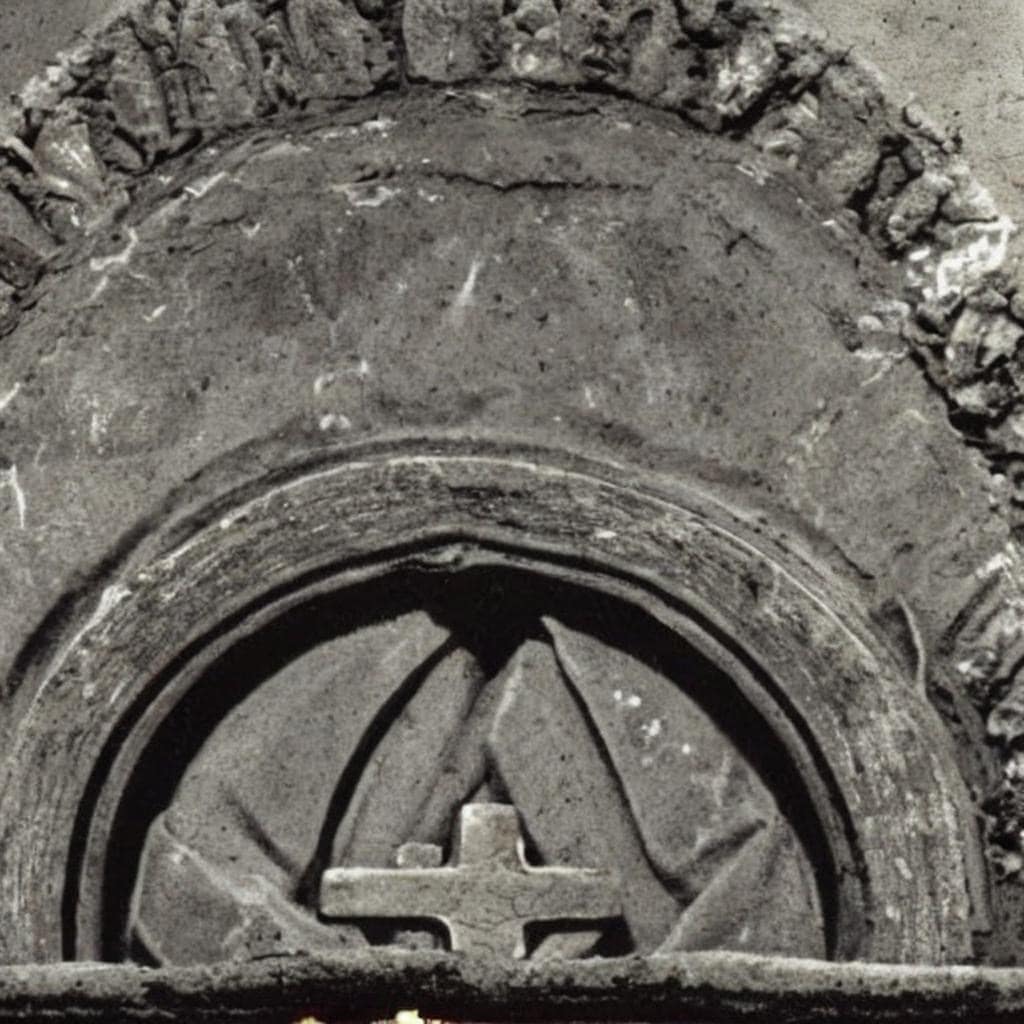
Godproofs in the Middle Ages: An Examination of Medieval Arguments for the Existence of God
In the medieval period, philosophers and theologians continued to develop and refine “godproofs” or arguments for the existence of God or gods. These arguments drew on a range of philosophical and theological traditions, including classical Greek philosophy, early Christian theology, and Islamic thought.
One of the most influential “godproofs” in the medieval period was the cosmological argument, which had been developed by the ancient Greek philosophers Plato and Aristotle. This argument suggested that everything in the universe has a cause, and there must be a first cause, which is identified as God. In the medieval period, the cosmological argument was developed and refined by a number of philosophers and theologians, including the Christian theologian Thomas Aquinas.
Aquinas developed what is known as the “Five Ways” or the “Five Proofs” for the existence of God. These arguments drew on classical Greek philosophy and Christian theology to provide a systematic and rigorous case for the existence of God. The Five Ways include the cosmological argument, as well as arguments from motion, contingency, degree, and finality. Each of these arguments sought to demonstrate the existence of God through different aspects of the natural world.
Another important “godproof” in the medieval period was the ontological argument, which had been developed by the Christian theologian St. Anselm of Canterbury in the 11th century CE. This argument suggested that God is the greatest being imaginable, and since existence is a necessary part of being great, then God must necessarily exist. The ontological argument was refined and developed by a number of philosophers and theologians in the medieval period, including the Christian philosopher and theologian Duns Scotus.
In addition to these arguments, medieval philosophers and theologians also developed a number of other “godproofs” that drew on Islamic thought, particularly the works of the philosopher and theologian Al-Ghazali. Al-Ghazali had developed what is known as the “Kalam Cosmological Argument,” which suggested that everything that begins to exist has a cause, and since the universe began to exist, it must have a cause, which is identified as God. This argument was later refined and developed by the Islamic philosopher and theologian Ibn Rushd, who argued that the universe must have a cause that is both necessary and self-sufficient.
The "godproofs" developed in the medieval period drew on a range of philosophical and theological traditions, and continue to shape contemporary debates about the existence of God and the nature of divinity. While they may not provide definitive proof of the existence of a divine being or beings, they represent important attempts to grapple with fundamental questions about the nature of existence and the universe.
Godproofs in the Late Middle Ages: A Review of Philosophical and Theological Arguments for the Existence of God in the 14th and 15th Centuries
In the late medieval period, philosophers and theologians continued to develop and refine “godproofs” or arguments for the existence of God or gods, building on the work of their predecessors in the earlier medieval and ancient periods.
One of the most prominent “godproofs” in the late medieval period was the argument from authority, which had been developed in the early Christian tradition and was further refined and developed by medieval theologians such as St. Thomas Aquinas. This argument suggested that the Bible, as the revealed word of God, provides evidence for the existence of God. Aquinas saw the Bible as a reliable and authoritative source of evidence for the existence of God and the nature of divine revelation.
Another important “godproof” in the late medieval period was the moral argument, which had also been developed in the early Christian tradition and was further refined and developed by medieval theologians such as William of Ockham. This argument suggested that the existence of objective moral values and duties requires a divine source, which is identified as God. Ockham saw the existence of objective moral values as evidence for the existence of a divine lawgiver and judge.
In addition to these arguments, late medieval philosophers and theologians also developed a number of other “godproofs” that drew on classical Greek philosophy and Islamic thought. For example, the cosmological argument was further refined and developed by philosophers such as John Duns Scotus and William of Ockham, who sought to provide a more rigorous and systematic case for the existence of God based on causality and contingency.
Another important “godproof” in the late medieval period was the teleological argument, which suggested that the complexity and order of the universe imply the existence of a designer, which is identified as God. This argument was developed by the Islamic philosopher and theologian Ibn Rushd, and was further refined and developed by the Christian philosopher and theologian William Paley in the 18th century CE.
The "godproofs" developed in the late medieval period drew on a range of philosophical and theological traditions, and continue to shape contemporary debates about the existence of God and the nature of divinity. While they may not provide definitive proof of the existence of a divine being or beings, they represent important attempts to grapple with fundamental questions about the nature of existence and the universe.
Godproofs in the 16th to 17th Centuries: An Exploration of Early Modern Arguments for the Existence of God
In the 16th and 17th centuries, philosophers and theologians continued to develop and refine “godproofs” or arguments for the existence of God or gods. These arguments reflected the cultural and intellectual context of their time, which was marked by the Scientific Revolution, the rise of modern philosophy, and the emergence of new religious and political movements.
One of the most prominent “godproofs” in this period was the ontological argument, which had been developed in the medieval period and was further refined and developed by philosophers such as René Descartes and Gottfried Leibniz. Descartes argued that God is the greatest possible being, and since existence is a necessary part of being great, then God must necessarily exist. Leibniz, meanwhile, developed a version of the ontological argument that drew on the concept of possible worlds.
Another important “godproof” in this period was the cosmological argument, which had also been developed in the medieval period and was further refined and developed by philosophers such as Thomas Hobbes and Samuel Clarke. Hobbes argued that the universe is a necessary and eternal entity that does not require a first cause or a creator. Clarke, meanwhile, drew on the concept of causality to argue for the existence of a first cause, which is identified as God.
In addition to these arguments, philosophers and theologians in this period also developed new “godproofs” that drew on emerging scientific and philosophical concepts. For example, the teleological argument was further refined and developed by the philosopher and theologian William Paley, who argued that the complexity and order of the universe Paley drew on the emerging science of biology to argue that the intricate design of living organisms provided evidence for the existence of a divine creator.
Another important “godproof” in this period was the moral argument, which drew on the emerging concept of natural law and the idea that there are objective moral standards that govern human behavior. This argument was developed by philosophers such as Hugo Grotius and Samuel Pufendorf, who saw the existence of objective moral values and duties as evidence for the existence of God.
The "godproofs" developed in the 16th and 17th centuries reflected the changing intellectual and cultural context of their time, and continue to shape contemporary debates about the existence of God and the nature of divinity. While they may not provide definitive proof of the existence of a divine being or beings, they represent important attempts to grapple with fundamental questions about the nature of existence and the universe.
Godproofs in the 17th to 19th Centuries: A Study of Philosophical and Scientific Arguments for the Existence of God in the Age of Enlightenment and Beyond
In the 17th to 19th centuries, philosophers and theologians continued to develop and refine “godproofs” or arguments for the existence of God or gods. These arguments reflected the changing intellectual and cultural context of their time, which was marked by the Enlightenment, the Scientific Revolution, and the emergence of new religious and political movements.
One of the most influential “godproofs” in this period was the teleological argument, which had been developed in the ancient world and was further refined and developed by philosophers such as William Paley and Thomas Reid. Paley argued that the complexity and order of the universe imply the existence of a designer, which is identified as God. Reid, meanwhile, drew on the concept of common sense to argue that the order and purpose in the natural world provide evidence for the existence of a divine creator.
Another important “godproof” in this period was the moral argument, which had also been developed in earlier periods and was further refined and developed by philosophers such as Immanuel Kant and Friedrich Schleiermacher. Kant argued that the existence of objective moral values and duties requires a divine source, which is identified as God. Schleiermacher, meanwhile, saw the existence of religious experience as evidence for the existence of God.
In addition to these arguments, philosophers and theologians in this period also developed new “godproofs” that drew on emerging scientific and philosophical concepts. For example, the cosmological argument was further refined and developed by the philosopher and theologian Thomas Aquinas, who drew on the concept of causality to argue for the existence of a first cause, which is identified as God. The argument from design was also further refined and developed by the philosopher and theologian William Paley, who drew on the emerging science of biology to argue for the existence of a divine creator.
The "godproofs" developed in the 17th to 19th centuries reflected the changing intellectual and cultural context of their time, and continue to shape contemporary debates about the existence of God and the nature of divinity. While they may not provide definitive proof of the existence of a divine being or beings, they represent important attempts to grapple with fundamental questions about the nature of existence and the universe.
Godproofs in the 20th Century to the Present: An Analysis of Contemporary Arguments for the Existence of God
In the 20th century and beyond, philosophers and theologians have continued to develop and refine “godproofs” or arguments for the existence of God or gods. These arguments reflect the changing intellectual and cultural context of their time, which has been marked by the rise of modern science, secularism, and pluralism.
One of the most prominent “godproofs” in the 20th century was the ontological argument, which had been developed in the medieval period and was further refined and developed by philosophers such as Kurt Gödel and Alvin Plantinga. Gödel argued that God is a necessary being, and that his existence can be demonstrated through mathematical reasoning. Plantinga, meanwhile, developed a modal version of the ontological argument that drew on the concept of possible worlds.
Another important “godproof” in the 20th century was the cosmological argument, which had also been developed in earlier periods and was further refined and developed by philosophers such as William Lane Craig and Richard Swinburne. Craig argued that the universe had a beginning, and that this implies the existence of a first cause, which is identified as God. Swinburne, meanwhile, drew on the concept of contingency to argue for the existence of a necessary being, which is identified as God.
In addition to these arguments, philosophers and theologians in the 20th century also developed new “godproofs” that drew on emerging scientific and philosophical concepts. For example, the argument from fine-tuning suggested that the fundamental constants of the universe are finely-tuned to permit the existence of life, and that this implies the existence of a designer, which is identified as God. This argument was developed by philosophers and theologians such as Robin Collins and William Lane Craig.
Another important “godproof” in the 20th century was the argument from religious experience, which suggested that the subjective experiences of religious believers provide evidence for the existence of God. This argument was developed by philosophers and theologians such as William James and Alister McGrath, and draws on the idea that religious experience is a distinct and valuable form of human experience that cannot be explained solely in terms of naturalistic causes.
The "godproofs" developed in the 20th century and beyond reflect the changing intellectual and cultural context of their time, and continue to shape contemporary debates about the existence of God and the nature of divinity. While they may not provide definitive proof of the existence of a divine being or beings, they represent important attempts to grapple with fundamental questions about the nature of existence and the universe.
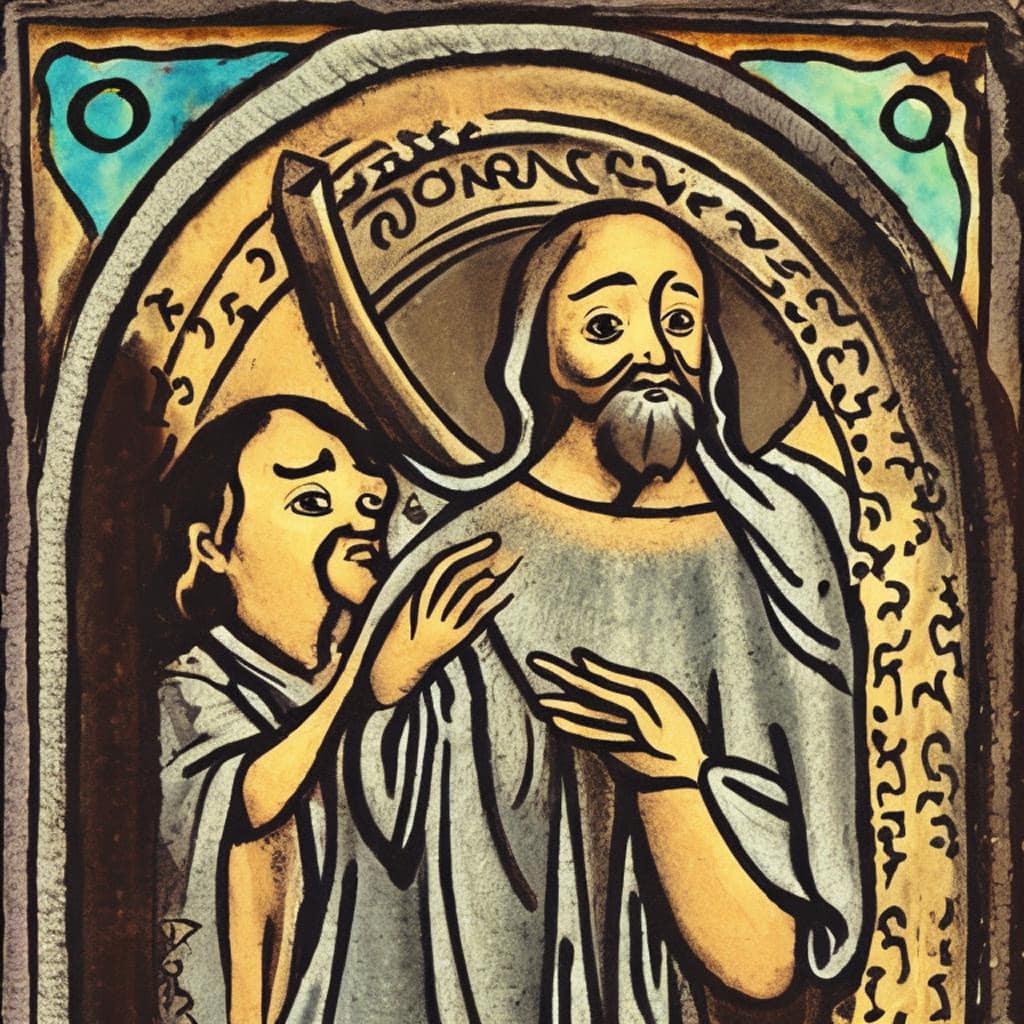
Blaise Pascal’s Wager: A Critical Examination of the French Philosopher’s Argument for Belief in God
Pascal's argument is often referred to as Pascal's Wager. The term "wager" is used to describe the argument because it suggests that belief in God is a rational bet, based on the potential benefits and costs of belief or disbelief. The argument is sometimes also referred to as "Pascal's Gambit," which reflects the idea that belief in God is a calculated risk, based on the possible outcomes of belief or disbelief.
Blaise Pascal was a 17th-century philosopher and mathematician who is best known for his contributions to probability theory and his religious writings. One of his most famous arguments for the existence of God is known as Pascal’s Wager.
Pascal’s Wager is a pragmatic argument that suggests that it is rational to believe in God, even if there is no definitive proof of his existence. The argument is based on the idea that the potential benefits of belief in God (eternal happiness) outweigh the potential costs of disbelief (eternal damnation).
Pascal argued that the decision to believe in God is not a matter of reason alone, but is also influenced by our emotions and desires. He suggested that if we believe in God and he exists, we will be rewarded with eternal happiness. On the other hand, if we do not believe in God and he exists, we will be punished with eternal damnation. Therefore, Pascal argued that it is rational to believe in God, because the potential benefits of belief outweigh the potential costs of disbelief.
Critics of Pascal’s Wager have pointed out that the argument is based on a false dichotomy between belief and disbelief, and that there are many other possible beliefs and ways of life that are not considered in the argument. Additionally, some have argued that the argument is morally problematic, as it seems to suggest that belief in God is justified solely on the basis of self-interest.
Despite these criticisms, Pascal's Wager continues to be an influential argument for the existence of God, and has been the subject of much debate and discussion in both philosophy and theology.
The Argument from Eternity: A Philosophical Exploration of the Concept of Infinity and its Implications for the Existence of God
The concept of eternity is closely related to infinity, since eternity refers to an infinite duration of time. In some religious and philosophical traditions, eternity is also understood as a state of existence that is outside of time altogether.
The idea of eternity has been the subject of much philosophical and theological discussion throughout history. One of the main questions that arises in discussions of eternity is whether it is possible for finite beings, such as humans, to grasp or understand the concept of infinity or eternity.
Some philosophers have argued that humans are incapable of fully grasping the concept of infinity or eternity, since our minds are limited by our finite existence. Others have suggested that while we may not be able to fully comprehend infinity or eternity, we can still make meaningful statements about them and draw important conclusions from them.
In religious traditions, eternity is often associated with the concept of immortality, or the idea that the soul or spirit of a person can continue to exist after death. Many religions also posit the existence of a divine being or beings that are eternal in nature.
The concept of eternity is a complex and multifaceted one, and has been the subject of much philosophical and theological debate throughout history. While the idea of infinity and eternity may be difficult for humans to fully grasp or comprehend, it remains an important aspect of many religious and philosophical traditions.
Godproofs in Hebrew Thought: A Survey of Jewish Arguments for the Existence of God throughout History
In Jewish theology, there are several “godproofs” or arguments for the existence of God that have been developed by Jewish philosophers and theologians over the centuries. These arguments draw on a range of philosophical and theological traditions, and reflect the diversity of Jewish thought and belief.
One of the most prominent “godproofs” in Jewish theology is the cosmological argument, which suggests that the existence of the universe implies the existence of a first cause, which is identified as God. This argument draws on the concept of causality and contingency, and has been developed by Jewish philosophers such as Maimonides and Saadia Gaon.
Another important “godproof” in Jewish theology is the argument from design, which suggests that the complexity and order of the universe imply the existence of a designer, which is identified as God. This argument has been developed by Jewish philosophers such as Judah Halevi and Moses ben Maimon (Maimonides), and draws on the concept of teleology or purpose in nature.
In addition to these arguments, Jewish philosophers and theologians have also developed other “godproofs” that draw on Jewish scripture and tradition. For example, the argument from revelation suggests that the divine revelations recorded in Jewish scripture provide evidence for the existence of God. This argument has been developed by Jewish theologians such as Abraham Joshua Heschel, who saw the events of Jewish history and the experience of Jewish peoplehood as evidence for the reality of God.
Another important “godproof” in Jewish theology is the moral argument, which suggests that the existence of objective moral values and duties requires a divine source, which is identified as God. This argument has been developed by Jewish philosophers such as Emil Fackenheim and Martin Buber, and draws on the concept of ethical monotheism in Jewish thought.
The "godproofs" developed in Jewish theology reflect the rich and diverse history of Jewish thought and belief, and continue to shape contemporary debates about the existence of God and the nature of divinity. While they may not provide definitive proof of the existence of a divine being or beings, they represent important attempts to grapple with fundamental questions about the nature of existence and the universe.
Godproofs in Islamic Thought: An Overview of Arguments for the Existence of God in Muslim Philosophy and Theology
In Islamic theology, there are several “godproofs” or arguments for the existence of God that have been developed by Muslim philosophers and theologians over the centuries. These arguments draw on a range of philosophical and theological traditions, and reflect the diversity of Islamic thought and belief.
One of the most prominent “godproofs” in Islamic theology is the cosmological argument, which suggests that the existence of the universe implies the existence of a first cause, which is identified as God. This argument draws on the concept of causality and contingency, and has been developed by Muslim philosophers such as al-Farabi, Avicenna, and al-Ghazali.
Another important “godproof” in Islamic theology is the argument from design, which suggests that the complexity and order of the universe imply the existence of a designer, which is identified as God. This argument has been developed by Muslim philosophers such as al-Kindi and al-Ghazali, and draws on the concept of teleology or purpose in nature.
In addition to these arguments, Muslim philosophers and theologians have also developed other “godproofs” that draw on Islamic scripture and tradition. For example, the argument from revelation suggests that the divine revelations recorded in the Quran provide evidence for the existence of God. This argument has been developed by Muslim theologians such as Al-Ghazali and Ibn Taymiyyah.
Another important “godproof” in Islamic theology is the moral argument, which suggests that the existence of objective moral values and duties requires a divine source, which is identified as God. This argument has been developed by Muslim philosophers such as al-Farabi, Avicenna, and al-Ghazali, and draws on the concept of ethical monotheism in Islamic thought.
The "godproofs" developed in Islamic theology reflect the rich and diverse history of Islamic thought and belief, and continue to shape contemporary debates about the existence of God and the nature of divinity. While they may not provide definitive proof of the existence of a divine being or beings, they represent important attempts to grapple with fundamental questions about the nature of existence and the universe.
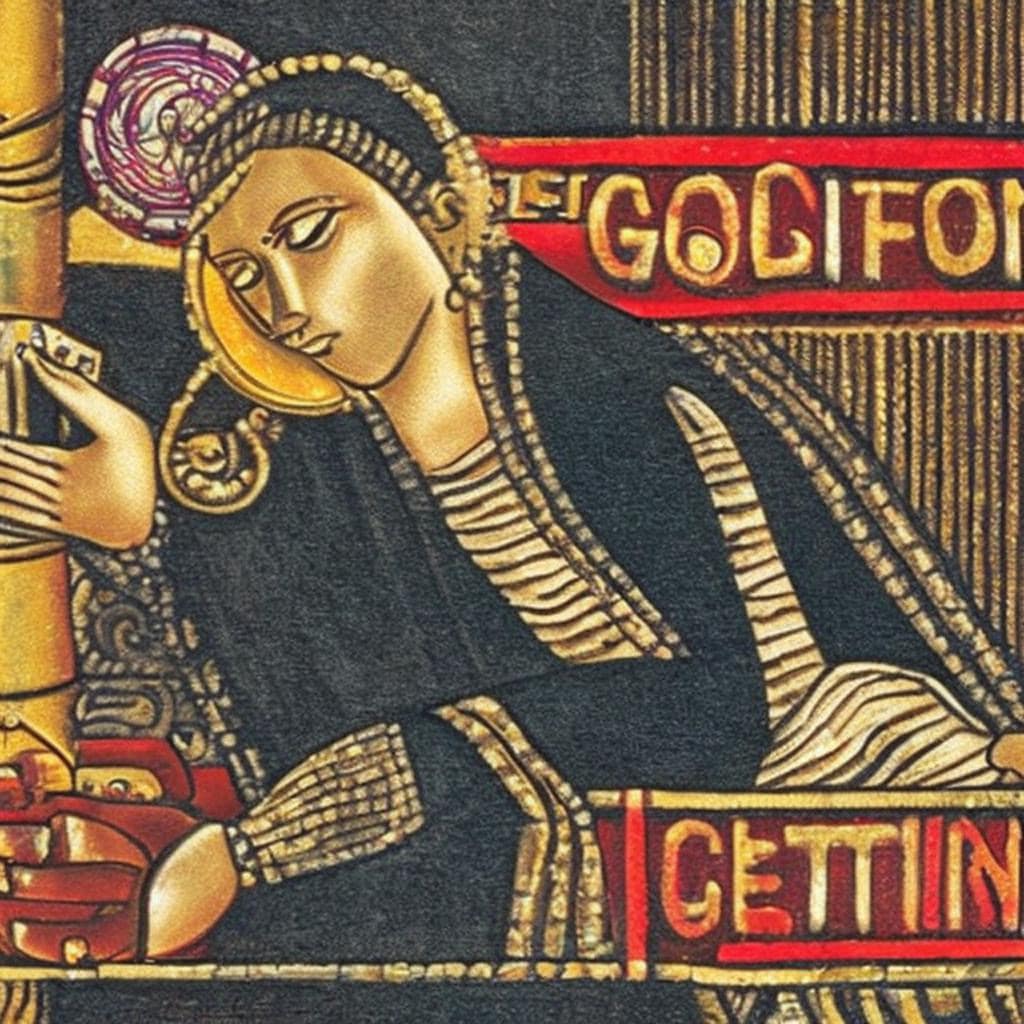
Godproofs as put forth by philosophers and theologians throughout history as evidence for the existence of God or gods.
“Godproofs” are arguments that have been put forth by philosophers and theologians throughout history as evidence for the existence of God or gods. These arguments draw on a wide range of philosophical, scientific, and theological concepts and reflect the diversity of human thought and belief.
One of the most ancient “godproofs” is the cosmological argument, which suggests that the existence of the universe implies the existence of a first cause or prime mover, which is identified as God. This argument has been developed by philosophers such as Aristotle and Thomas Aquinas, and draws on the concept of causality and contingency.
Another important “godproof” is the teleological argument, which suggests that the complexity and order of the universe imply the existence of a designer, which is identified as God. This argument has been developed by philosophers such as William Paley and Thomas Reid, and draws on the concept of teleology or purpose in nature.
In addition to these arguments, philosophers and theologians have also developed other “godproofs” that draw on religious experience, moral reasoning, and the concept of necessary existence. For example, the moral argument suggests that the existence of objective moral values and duties requires a divine source, which is identified as God. This argument has been developed by philosophers such as Immanuel Kant and William Lane Craig.
Another important “godproof” is the ontological argument, which suggests that the concept of God implies his existence, and that God is a necessary being. This argument has been developed by philosophers such as Anselm of Canterbury and Kurt Gödel, and draws on the concept of necessary existence.
Other “godproofs” draw on emerging scientific and philosophical concepts. For example, the argument from fine-tuning suggests that the fundamental constants of the universe are finely-tuned to permit the existence of life, and that this implies the existence of a designer, which is identified as God. This argument has been developed by philosophers such as Robin Collins and William Lane Craig.
The "godproofs" developed throughout history reflect the rich and diverse history of human thought and belief, and continue to shape contemporary debates about the existence of God and the nature of divinity. While they may not provide definitive proof of the existence of a divine being or beings, they represent important attempts to grapple with fundamental questions about the nature of existence and the universe.
In addition to the arguments mentioned above, there are also arguments that draw on religious texts and traditions. For example, some argue that the existence of divine revelation in religious texts, such as the Bible or the Quran, provides evidence for the existence of God. This argument suggests that the content of these texts is too profound and meaningful to have been solely the work of human beings.
Other arguments draw on personal experience and intuition. For example, the argument from religious experience suggests that the subjective experiences of individuals provide evidence for the existence of God. This argument is based on the idea that religious experiences are a distinct and valuable form of human experience that cannot be explained solely in terms of naturalistic causes.
It is important to note that these “godproofs” have been the subject of much debate and criticism throughout history, with many philosophers and theologians challenging their validity and effectiveness. For example, critics of the cosmological argument point out that it is difficult to prove the existence of a necessary being, while critics of the teleological argument argue that it is possible for the universe to have emerged through natural processes without requiring the intervention of a designer.
Despite these criticisms, the search for evidence of the existence of God or gods remains a fundamental and enduring question in philosophy and theology. While these arguments may not provide definitive proof, they continue to stimulate thought and debate about the nature of existence and the universe.
Table summarizing some of the main “godproofs” throughout history, along with some of their strengths and weaknesses
| Argument | Description | Pros | Cons |
| Cosmological Argument | The existence of the universe implies the existence of a first cause or prime mover, which is identified as God. | Draws on concepts of causality and contingency. | Critics point out that it is difficult to prove the existence of a necessary being. |
| Teleological Argument | The complexity and order of the universe imply the existence of a designer, which is identified as God. | Draws on the concept of teleology or purpose in nature. | Critics argue that it is possible for the universe to have emerged through natural processes without requiring the intervention of a designer. |
| Ontological Argument | The concept of God implies his existence, and that God is a necessary being. | Draws on the concept of necessary existence. | Critics point out that the argument assumes that existence is a property that can be attributed to objects. |
| Argument from Revelation | The divine revelations recorded in religious texts provide evidence for the existence of God. | Draws on religious texts and traditions. | Critics argue that religious texts can be interpreted in multiple ways, and that their reliability as evidence is open to question. |
| Moral Argument | The existence of objective moral values and duties requires a divine source, which is identified as God. | Draws on the concept of ethical monotheism. | Critics argue that it is possible to ground morality without reference to a divine source. |
| Argument from Religious Experience | The subjective experiences of individuals provide evidence for the existence of God. | Draws on personal experience and intuition. | Critics argue that religious experiences are difficult to verify and can be explained in terms of naturalistic causes. |
| Argument from Fine-Tuning | The fundamental constants of the universe are finely-tuned to permit the existence of life, and that this implies the existence of a designer, which is identified as God. | Draws on emerging scientific and philosophical concepts. | Critics argue that it is possible for the universe to have emerged through natural processes without requiring the intervention of a designer. |
This table is not exhaustive and that there are many other arguments that have been put forth throughout history. Additionally, the strengths and weaknesses of these arguments are subject to ongoing debate and discussion in philosophy and theology.
The argument from reason is an important “godproof”
The argument from reason is an important “godproof” that has been put forth by philosophers and theologians throughout history. This argument suggests that the existence of rationality and the ability to reason imply the existence of a divine mind or intelligence, which is identified as God.
The argument from reason draws on the idea that the human mind is capable of understanding abstract concepts and mathematical truths, and that this ability cannot be fully explained by naturalistic causes. Proponents of this argument suggest that the existence of reason and rationality point to the existence of a divine being or intelligence that created the universe with rationality and intelligibility in mind.
One of the strengths of the argument from reason is that it draws on the universality of reason and the human ability to grasp abstract concepts, which suggests that it is a powerful and widely accessible argument. Additionally, proponents of this argument suggest that it provides a basis for the rationality and intelligibility of the universe, and can help to explain the underlying order and structure of the natural world.
However, critics of the argument from reason point out that it is difficult to prove that the human mind’s ability to reason is not solely the result of naturalistic causes, such as evolution. Additionally, some critics argue that the existence of rationality and the ability to reason do not necessarily imply the existence of a divine mind or intelligence.
The argument from reason is an important and interesting "godproof" that has been the subject of much debate and discussion in philosophy and theology. While it may not provide definitive proof of the existence of God, it remains an important aspect of the search for evidence of divinity in the natural world.
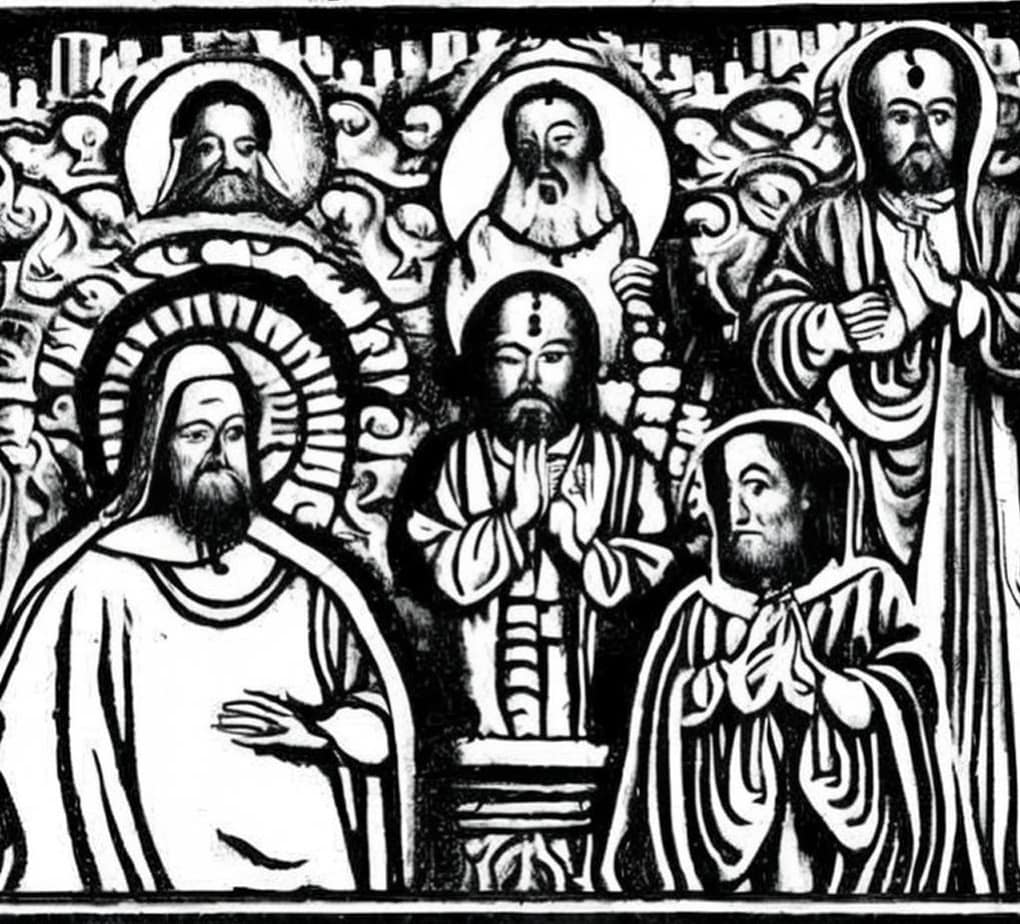
Source OpenAI’s GPT language models, Fleeky, MIB, & Picsart
Thank you for questions, shares and comments!
Share your thoughts or questions in the comments below!




